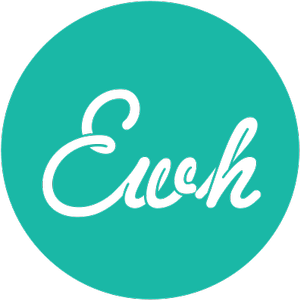
The Why’s and How’s of Choosing an Editor
 Writing for young people is deceptively difficult. But getting published these days can be a harder task than the writing process. The marketplace has changed dramatically over the past ten years, and the pressure on publishing houses to cater to their bottom lines means fewer acquisitions and higher hoops for authors to jump through in order to get their work seen, let alone published.
Writing for young people is deceptively difficult. But getting published these days can be a harder task than the writing process. The marketplace has changed dramatically over the past ten years, and the pressure on publishing houses to cater to their bottom lines means fewer acquisitions and higher hoops for authors to jump through in order to get their work seen, let alone published.
Manuscripts that are overwritten, under-developed, derivative, riddled with mistakes, or out of touch with the marketplace often won’t make it past the pre-screener’s desk – so it’s imperative that yours is in the best possible shape before you even think of submitting it for publication or agent consideration. The best way to do that is by hiring a freelance editor to give it the once over before you submit. It can actually make the difference between a book getting selected for publication or not.
I work with freelance editors regularly myself. Even though I am one, I can’t edit my own work – and I don’t see the weaknesses in my writing that I can spot in other people’s. I recently got a comprehensive, page-by-page evaluation of a picture-book manuscript I’m working on that included a round of follow up questions. It was invaluable, and well worth the investment.
There are a number of editorial services to choose from. A manuscript evaluation gives you comprehensive written feedback as to what the strengths and weaknesses of your story are, as well as recommendations for character and plot development, assessments of theme and structure, and so forth. Armed with this evaluation, you then conduct your own rewrite. Content- or line-editing means line-by-line recommendations for changes to words, sentence structure and grammar, as well as refinements in plot, character development, theme, and narrative. This service is obviously more expensive, but depending on your needs may be more helpful. Copy-editing is generally proof-reading and fact checking.
Finding the right editor is a little like finding the right athletic coach or teacher for your child. You need to feel safe about placing your cherished manuscript in their hands, and trust that it will be nurtured and supported in its development and be the stronger and better for it. There are several good places to conduct a search. One is the Editorial Freelancers Association, which most freelance editors are members of. You can also find editors on Elance and Guru as well as through Media Bistro. If you are a member of the Society of Children’s Book Writers and Illustrators (and if you aren’t a member, you should be) they will give you a pdf list of member editors they recommend. The latter is probably your best guarantee of quality. Of course, you can also conduct a Google or other search-engine search – simply enter the words “childrens book editors” or “freelance editors” and explore the websites that come up.
The following are six steps to help you identify and select the right editor for you:
1) Decide what type of editing service you need: manuscript evaluation, content or line editing, or proof-reading. When in doubt, go for an evaluation first. Most editors will give you a break on the price of follow-up line-editing if they have provided an evaluation first, and this can be the most cost-effective way to get the best result.
2) Look for someone who has significant experience in the children’s book industry, either as an author or an editor – preferably both – and specifically in the genre you are writing in.
3) Ask to see samples of their work. Some editors will share anonymous examples of their evaluations, others will offer to line-edit two or three pages of your manuscript so that you can get a sense of whether their style and approach is simpatico with yours.
4) Review any testimonials and endorsements, or ask for references you can contact.
5) Ascertain their pricing structure, and be very clear about understanding what you will get for that price. If you are getting an evaluation, will it be in writing so you can refer to it later as needed? Are you allowed any follow-up questions? Will they give you a projected schedule for completion of their work? How about a discount off of any future services?
Once you’ve researched your options, narrow it down – and then go with your gut as to who feels the most accessible, professional and right for your particular project.
